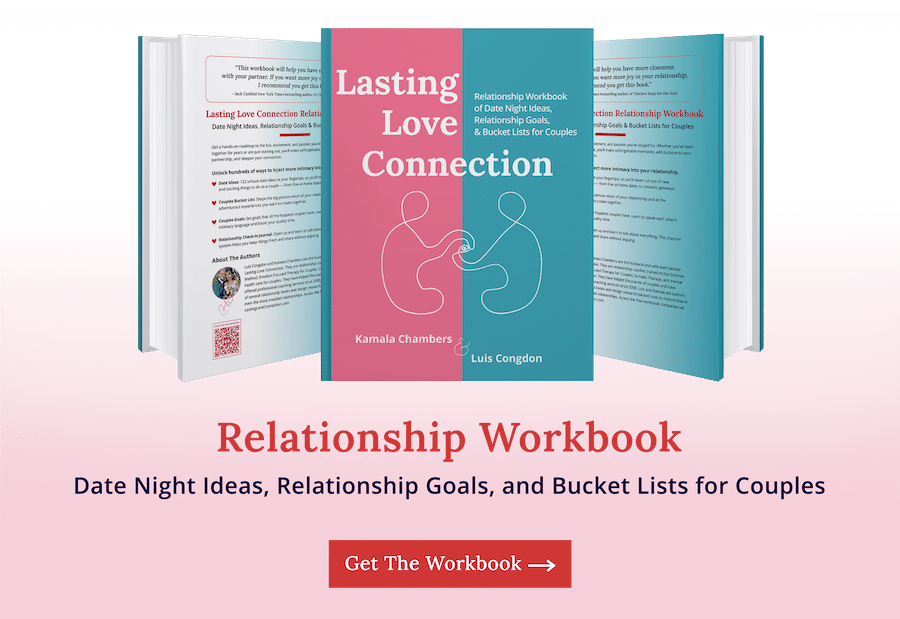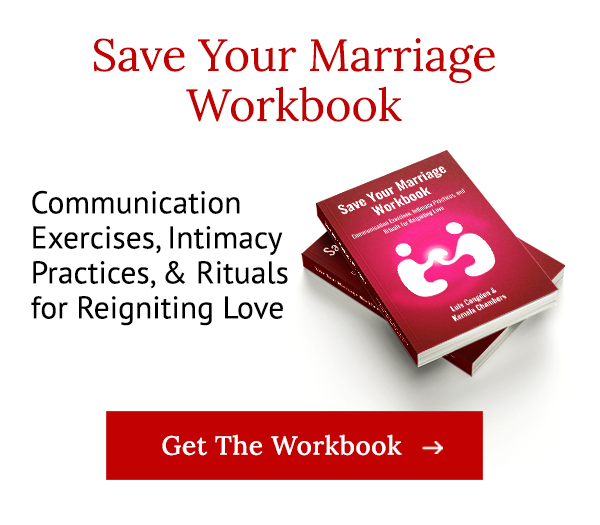Knowing how to overcome resentment in marriage is tough. Resentment can be an all-too-familiar emotion for couples.
However, it can creep into marriages gradually and have devastating consequences.
Resentment is a form of anger often directed at someone who has done something “wrong” or hurtful.
But, while it can seem like resentment in your marriage will never end, there are ways to fix resentment and find forgiveness with your partner.
Table of Contents
Why do people have resentment and anger in marriage?
People have anger and resentment in marriage for a variety of reasons. However, it is often the result of a buildup of unresolved issues, hurt, and conflicts that have been left unattended for too long. Often, resentment begins with unmet needs or expectations. But, disappointment can amplify as past hurts when hard feelings are unresolved.
What resentment does to a relationship?
Resentment can be incredibly damaging to a relationship. When it takes hold, it can lead to hurt and broken trust between partners. Therefore, address resentment before it takes over your marriage.
Can resentment destroy a marriage?
Yes. Resentment can tear a marriage apart. Holding onto resentment is one of the biggest signs that your marriage will end in divorce. Resentment in marriage is all too common. Also, resentment can create tension and strain the marriage as positive emotions are overtaken by negative feelings such as anger, sadness, or even betrayal.
Is it normal to resent your partner?
It is not uncommon for couples to experience resentment or bitterness in their marriage from time to time. Resentment can occur due to factors such as feeling taken for granted, like your partner does not fully understand you, or that you are putting more effort into the marriage than your partner. It is normal to experience resentment in marriage occasionally. However, couples may want to seek professional help when these feelings become persistent. Ideally, address negative emotions when they arise and without blame.
A marriage counselor can provide valuable insight and help you talk through hurtful feelings while staying emotionally connected. With effective communication strategies, successful problem-solving techniques, and emotional support, many couples can move past moments of conflict and rebuild intimacy.
Common causes and signs of resentment in marriage

Sometimes, people hold resentment because they feel they are treated unfairly in their marriage.
Resentment in your marriage can come from an imbalanced power dynamic that can cause one to feel like their opinions don’t count, leading to anger and frustration.
A spouse may struggle with feeling trapped in a situation where they cannot get what they want out of the relationship, causing them to hold onto resentment.
Fear-based beliefs such as “I’m not good enough” or “I won’t be happy unless I get my way” can create unresolved issues and resentments.
One spouse wants more intimacy than the other, and they’re not on the same page about their sex life.
One spouse might think they do nothing wrong and are unwilling to acknowledge and take responsibility for their actions in the relationship.
Neither spouse feels heard or understood, and their relationship issues fall on deaf ears.
There are inappropriate relationships outside of the marriage with friends or co-workers. Or they would rather spend time with people outside of the marriage.
Insecurities, fear of abandonment, or being taken for granted can also contribute to resentment.
The bottom line is that common causes of resentment in marriage are an accumulation of unresolved conflicts, lack of communication and trust, power imbalances, and unmet expectations in the relationship.
To prevent resentment in marriage, work to resolve conflicts quickly before they form into this highly toxic emotion.
What is the root cause of resentment in marriage?

The root cause of resentment in marriage can often trace back to unmet needs or expectations. When one person in the marriage has needs or expectations left unattended, anger and pain can turn to resentment.
The underlying cause of resentment in a relationship can be complex and based on many different variables. In some cases, partners may feel resentful because they have different expectations and goals than their partners.
Differing expectations in a marriage could involve disagreements on topics such as finances, parenting styles, and even career paths.
Other times, signs of resentment might stem from a lack of communication between partners or an inability to express hurt or anger effectively.
Additionally, unmet needs can lead a spouse to feel disregarded by the other, which can further contribute to resentment in marriage.
For example, your wife or husband ignores you instead of coming to you to confront issues directly.
Common root causes of resentment in marriage

A spouse may have unrealistic expectations that the other can’t meet, leading to anger and frustration.
Resentment in marriage can stem from an inability to forgive. Without forgiveness, there is no resolution. A spouse might bring up the same pain or issue whenever there is a disagreement.
Relationship disharmony is often rooted in communication breakdowns and imbalances in relationship efforts.
Resentment in marriage can also be rooted in misaligned values and beliefs. When two people have conflicting views or values, tensions may arise between them. If they try to find a compromise, it can become easier for them to move forward together.
Furthermore, unresolved traumas and pains can resurface in a marriage if neglected, leading to intense emotion that seemingly comes out of nowhere.
These are some signs of resentment in marriage and why they may develop. Understanding the underlying cause of resentment will help you address and repair any damage done.
A few signs of resentment in marriage

Couples can express and feel resentment in different ways. For example, one spouse might put up an emotional wall while the other spouse expresses resentment through anger.
When resentment builds up in a relationship, it can lead to harmful communication patterns such as stonewalling, criticism, contempt, or defensiveness (also known as the Four Horsemen).
In addition, anger is sometimes expressed outwardly, and arguments become more common. Eventually, resentment leads to a lack of closeness and intimacy within the marriage, which can cause further distance if unresolved.
How to deal with resentment in a relationship?

Resentment in marriage is one of the most common issues that couples face and can damage the emotional well-being of you and your spouse.
Ideally, couples learn how to deal with resentment and heal their relationships before too much damage.
If there are signs of resentment in your relationships, take steps to resolve things.
1. Remember why you fell in love

Talking about resentments can trigger and make you or your spouse jump into fight or flight rather than love and compassion.
So, reflect on why you fell in love in the first place.
Remember the little moments when you were happy?
Reflecting on what’s good between you helps create emotional safety in your marriage.
2. Express gratitude to dissolve resentment in marriage

One of the signs of resentment is feeling taken advantage of or not appreciated enough by your partner.
Partners might take each other for granted and forget there should still be appreciation for one another’s efforts even after years of being together.
One of the most common reasons for resentment in marriage is the feeling that one partner is taken advantage of or not appreciated enough by their spouse.
This could include times when unspoken expectations in your marriage have gone unnoticed or unmet. These unmet expectations could cause resentment from the partner, who expected something different to happen.
Being underappreciated can make you feel undervalued and taken for granted, eventually creating hatred toward your partner.
Gratitude can be a potent tool for dissolving resentment in marriage. Expressing gratitude and receiving it can create a sense of connection and appreciation between you.
When you show genuine gratitude for each other’s efforts and words, it helps to fix resentment that may have been building over time.
Try the Appreciation Game to bring more love into your relationship.
Acknowledge the effort.
Being grateful towards your partner has some advantages.
First, it sends out the message that you value your partner, acknowledge their efforts, and are thankful that they are part of your life.
Praising the effort creates positive feelings between both people and encourages more positive interactions regularly.
Gain perspective.

Practicing gratitude also helps to identify and appreciate the little things in life. Focusing on what you appreciate will help bring perspective to any negative feelings.
Practicing appreciation together is even better.
Instead of focusing on what isn’t working, focus on the moments when things worked out.
Problem solve.
Finally, practicing gratitude helps you develop problem-solving skills together.
Being thankful for each other’s opinions can get you talking about resolution strategies. Further, you can dissolve underlying resentments and create enough peace to resolve constructively.
Expressing gratitude also serves as an excellent reminder that no matter how difficult the challenge may seem, there is still beauty and joy in even the smallest moments shared.
Gratitude makes finding common ground easier than focusing on disagreements or feeling stuck in your perspectives.
3. Talk without intense emotion

Resentment can also arise when partners don’t communicate effectively about their needs and desires in the relationship.
For example, suppose partners aren’t honest about their thoughts and feelings. In that case, their partner may not fully understand their expectations, and resentment grows.
The first step towards dealing with resentment in marriage is talking with loving kindness. As you talk, try to remember that you love each other.
Commit to talking while you’re calm and in your window of tolerance to avoid blow-ups or shutdowns.
Talking with a calm nervous system can help you, and your spouse identify the underlying cause of your resentment and find solutions together.
Ultimately, by talking about issues head-on from a place of love, you’ll be able to move past underlying resentments towards one another and tear down the emotional wall.
This kind of dialogue allows each person to express their needs and wants without fear of judgment, criticism, or defensiveness from the other.
As long as both partners enter this conversation with respect and understanding, they can identify underlying issues to healing resentment.
4. Listen until you both feel understood

The key to dealing with resentment in relationships is effective communication and understanding.
Practice active listening as you talk until you and your spouse feel understood.
Listening means being present at the moment and paying attention without interruption or judgment to understand what your spouse is saying.
Take turns expressing your point of view without judgment or criticism. Instead, actively listen with compassion when your spouse shares their emotions about particular issues.
Try not to make assumptions about your partner’s intentions or feelings, as this can lead to further misunderstandings.
5. Slow down and minimize stress

Feeling overwhelmed with life’s challenges, such as money struggles, mental health issues, stress at work, etc., can all contribute to resentment in marriage.
Instead of rushing from one stressor to the next, invite your partner to unwind with you. Take time out of your busyness to do something relaxing together.
For example, get a couples massage, take a bath together, or invite each other on walks.
Often, stress that causes resentment in marriage requires professional help. Online marriage counseling can help heal relationship wounds and address underlying problems that are bringing stress to your relationships.
6. Take responsibility for your part

Resolving resentment in marriage requires taking responsibility for your part.
First, understand how your behavior affects your spouse so you can work together to find solutions rather than point fingers at each other.
Then, look at the ways you contributed to the disconnect between you. Share with your partner how you minimized or maximized situations that led to more resentment.
7. Empathize with each other
Empathy is essential to be able to forgive your spouse.
Try putting yourself in your partner’s shoes and seeing things from their perspective so you can resolve conflicts without animosity or arguments.
Focus on building empathy so you can reconnect and forgive each other.
8. Unpack why there is resentment in marriage

Next, work together to understand why you have signs of resentment in marriage.
When it comes to resentment in marriage, seek to understand the root of these feelings. Then, you can work through issues, find healthier ways of communicating, and resolving differences.
Am I resentful because of external stress, like work or kids?
Or could it be something internal, like a trigger from past experiences?
Taking time to examine each person’s feelings can help both partners better understand the cause of resentment and how they can support each other in those times of difficulty.
Once you know what’s causing the resentment, share. Create an environment where you both feel respected and heard to begin healing.
9. Get curious

Curiosity can be a powerful tool for working through resentment in marriage. In addition, curiosity can help you better understand your partner’s perspective and open new opportunities for connection.
With curiosity, you can learn more about how your partner feels and why they respond in specific ways. This can lead to deeper understanding, which can help dissolve built-up tension.
At the same time, curiosity can help you learn more about yourself, your feelings and motivations, and your responses to situations.
Through this exploration, you can connect your past experiences to your current conflicts, leading you to dig deeper to find more constructive resolutions.
You can avoid feeling blamed or judged by embracing curiosity within your marriage. This attitude of openness helps defuse feelings of anger or resentment in marriage.
Practice respectful dialogue rather than defaulting to blame or accusations.
Get curious by asking questions like
What could I do differently?
How can we find a resolution that works for both of us?
What do you need that you’re not getting?
10. Replace negative emotions with positive ones

When there is excessive resentment in marriage, enjoying your spouse’s company can be challenging.
Your spouse should be one of your best friends. So look for ways you and your partner can focus on your friendship.
Find common ground through shared experiences, interests, and meaningful conversations about marriage goals or dreams for the future.
In addition, engage in activities that foster curiosity—such as visiting a museum or attending an art class. New activities can help bring you closer while providing opportunities for new conversations on shared interests and passions.
Finally, spending quality time together doing something novel is often enough to break down any walls built up over time due to resentment or misunderstanding.
For 100+ unique date ideas to bring you closer, pick up the Relationship Workbook.

Newness and fun can remind you why you chose each other in the first place.
11. Meet unmet needs

Another potential source of resentment in marriage is if one of you feels your needs are unmet.
For example, suppose you feel that you’re always doing more around the house than your partner. Or you feel like your husband wants sex but not intimacy.
In that case, this might lead to bitterness and unhappiness in the relationship, manifesting in resentment towards the other person.

It is also possible for a person to feel resentment if they feel like their relationship lacks mutual respect or trust.
Emotional hurt can accumulate over time when one partner feels neglected, unheard, or misunderstood by their spouse, which can eventually turn into resentment towards them.
Explore your underlying needs and request what would help meet those needs.
12. Show mutual respect
It is also possible for a person to feel resentment if they feel like their relationship lacks mutual respect or trust.
Emotional hurt can accumulate over time when one partner feels neglected, unheard, or unloved by their spouse, which can eventually turn into resentment towards them.
In your relationship, ask yourself, “How can I show my partner more respect.” Reflecting on this while you’re interacting can strengthen the overall respect in your marriage.
13. Get better at addressing issues in the moment
Ideally, you and your partner will talk about resentment in marriage as soon as it comes up.
Talk with your partner as soon as possible when you notice tension or anger.
Even if you don’t know how to resolve the issue, acknowledging relationship problems as soon as they start can ensure they don’t grow into resentment.
14. Forgive and move on

Forgiveness is vital to moving forward without lingering resentment in marriage getting in the way of progress.
Letting go of resentment in marriage is not just about forgiveness. It’s also about letting go of what happened, so your marriage isn’t forever weighed down with past hurts.
Everyone makes mistakes – that’s just part of life.
Forgiveness creates healthier relationships where both partners are respected and loved unconditionally.
It’s not always easy to forgive, but it is possible.
By taking ownership of your feelings and actions, you can learn how to forgive your partner and be a team instead of letting resentment stand in your way.
Overall, letting go of resentment takes hard work, but you don’t have to do it alone.
It’s helpful to talk with a professional counselor who can guide this process and help you identify your emotions.
15. Take action today

Knowing all the steps to resolve resentment in marriage is only part of the battle.
So take action today and dive into marriage books to strengthen your relationship.
Pick up the Save Your Marriage Workbook to help guide your marriage out of resentment.
The Save Your Marriage Workbook is packed with exercises and tools to guide you and your partner out of resentment and into connection.
With patience, mindfulness, open communication, and empathy-building activities – you’ll increase understanding and fix resentment together.
16. Get marriage counseling

Marriage counseling can be an invaluable resource for couples struggling to fix a broken relationship full of resentment.
Resentment in marriage is a symptom of underlying issues such as a power imbalance, conflict avoidance, and the need to control the situation.
Through marriage counseling, you can gain insight into these deeper issues, identify which ones are causing the resentment, and find healthy solutions to address them.
In marriage counseling, you and your partner can talk through issues in a safe environment without judgment or unhealthy communication habits taking over.
Working with a counselor gives each person an equal voice and encourages cooperation so you can meet each other’s needs.
In addition, it allows for candid communication about what is causing resentment in marriage, how it affects both people in the relationship, and how to address it in ways that create mutual respect.
Marriage counseling aims not simply to get over the resentment but to end its root causes by changing both partners’ behaviors and attitudes toward each other.
In addition, counseling helps build trust between you by guiding and supporting each other through difficult times and having uncomfortable conversations about feelings and expectations.
These conversations can help you feel valued and heard while learning new communication methods. Ultimately, this leads to more positive interactions between the couple, which will help reduce resentment over time.
Book a complimentary couples consult and see if marriage counseling is right for you.
How to let go of resentment towards your partner?

Letting go of resentment towards your partner can be a challenging process. Resentment can feel suffocating and all-consuming and make it so you can’t feel love in your marriage.
Also, resolving resentment in marriage isn’t a one-time event but an ongoing process that requires dedication, understanding, and patience.
Feel your feelings
If you’re wondering how to get rid of resentment in a marriage, the first step is recognizing and admitting your feelings.
Acknowledge the thoughts that come up when you think of your spouse and how they’ve deeply hurt or disappointed you.
Reflecting will help you better understand why you feel resentful.
Recognizing your feelings doesn’t mean you use them to validate reasons for staying in a negative cycle.
Understanding why you feel specific ways gives space for your pain and hurt so you can move on from it.
Another way to fix resentment is through self-compassion. By having compassion for your faults, it’s easier to dissolve your anger and find forgiveness.
Permit yourself to share.
Once you recognize your feelings, could you share them with your partner?
Sharing doesn’t mean accusing them of making mistakes or pointing fingers. Instead, it means expressing yourself in a way your partner can hear.
Recognize when resentment started

To overcome resentment in marriage, recognize when it started.
Recognizing when resentment started in a relationship can help you pinpoint what you might need to resolve it.
Identifying where the resentments began in a relationship is critical to move forward without carrying negative feelings from the past into the present.
With self-reflection, you can confront feelings of bitterness and hatred. Recognizing where resentments stem from will bring about more peace and understanding for a healthier relationship dynamic.
Also, contemplate how you would like to move forward with your relationship.
Is there anything specific that needs addressing?
Do you need help connecting better with your spouse?
Explore these questions to clarify what might be hurting your partner so that you can move forward with a greater understanding of yourself.
Meet your own needs

You likely had an unmet need or expectation when you first felt the resentment.
Resentment in marriage is common when you expect your partner to act differently than they do or if your partner was expecting something that never came to fruition.
If you can identify the deeper need you might have, it can help meet that need now.
For example, if one person expected the other to spend more time with them or help around the house more often, but those expectations were not met, then resentment may start to build.
To understand why you have resentment in marriage, take some time and reflect on why you may feel this way and what you need.
Practice self-care

Couples who don’t practice self-care can lead to feelings of resentment in marriage.
Self-care involves taking time for yourself and your needs, treating yourself with kindness, and living a healthy lifestyle.
Moreover, when you prioritize self-care, you’ll likely have less energy to invest in your relationship. This lack of effort can leave the other partner feeling taken for granted and undervalued in the relationship, contributing to resentment from both sides.
Self-care and self-compassion help maintain a healthy balance in your relationship.
Taking personal responsibility for your well-being can diminish resentment in marriage because you’re more resourced and have fewer expectations from your relationship.
Self-care is essential for mental health.

Without self-care, your mental health can suffer, and you might start to believe they are not worthy of respect or love.
Without self-care, expectations for your partner to meet all your needs can escalate. Further, resentment can build in the relationship when your partner doesn’t meet your expectations.
Additionally, without self-care, such as healthy habits like exercise, eating nutritious foods, and getting enough sleep, you’re more likely to feel overwhelmed by stress and anxiety.
An inability to properly manage stress and frustration over unmet expectations can cause conflicts within the relationship, often leading to more resentment.
Keep your body healthy and strong during challenging times so you’re better equipped emotionally to handle issues between you.
Resolve resentment in marriage with self-care
Take time away to prioritize your well-being and mental health.
Make sure you get enough sleep.
Eat healthy meals throughout the day.
Have fun with friends and family.
Call on your support system when you’re low.
Exercise regularly.
Go on a solo trip.
Do something creative.
Plant something in your garden.
Get outside in nature.
Practice things that help you recenter, like meditation, breathing exercises, or yoga.
Journal about your resentment in marriage to gain insight into why you’re upset.
In addition, spending time outside the conflict can help you gain perspective on the situation. And once you’re resourced, it will be easier to maintain a level head while talking with your spouse.
Next time you have resentment in marriage, try talking with friends or your support system. Counseling can help bring you back into balance and peace.
Can a marriage recover from resentment?

Yes, a marriage can recover from resentment. However, both partners must be willing to put in the hard work and dedication required to rebuild trust.
Dealing with resentment in marriage includes:
Talking about the source of the resentment.
Addressing the underlying issues.
Finding ways to communicate more effectively in the future.
Some resentment is rooted in old experiences and trauma before marriage.
For example, if one of you experienced neglect or abandonment during childhood, it can be challenging to fully trust your partner. If this is the case, they may need professional counseling to overcome these deep-seated feelings of distrust.
In addition to exploring past trauma and its connection with resentments, discuss any ongoing conflicts and look at your current behavior towards each other.
For example, are either of you holding grudges?
Do you quickly become defensive or aggressive when you talk about specific topics?
Do you apologize when you make mistakes?

These are all things to address to fix resentment in marriage.
Another key element of rebuilding trust is learning to compromise on disagreements without resorting to power struggles or ultimatums.
Keep things respectful—no yelling or name-calling.
Take turns expressing yourselves without interruptions until you both feel heard and understood.
Finally, reestablish your emotional connection through shared activities such as date nights, vacations, and marriage counseling sessions, to reconnect on an intimate level.
A marriage can recover from resentment if you are committed to repairing your relationship and fostering shared respect.
Overcoming resentment in marriage is vital for happy relationships
Resentment can be a complicated emotion to deal with in any relationship, especially in marriage.
However, recognizing your feelings, communicating with your partner, and learning to forgive one another are keys to a successful marriage.
Overcoming resentment in marriage builds a solid foundation for romantic relationships.
With patience, commitment, understanding, and compassion, you can work through any challenges and focus on growing together as a couple instead of drifting apart.







0 Comments